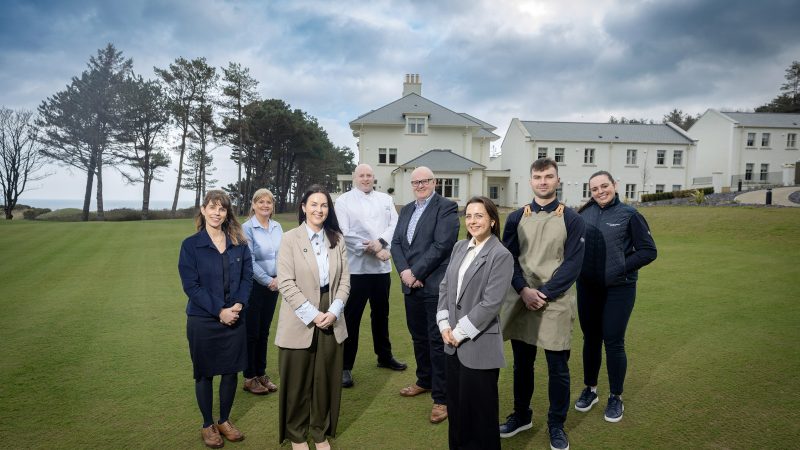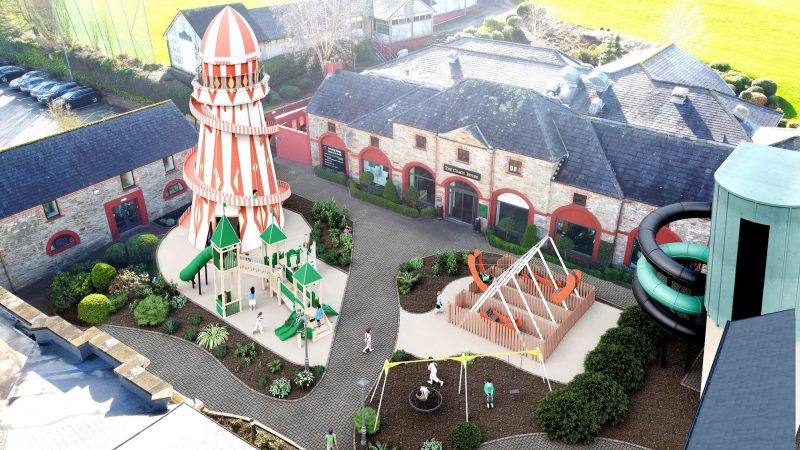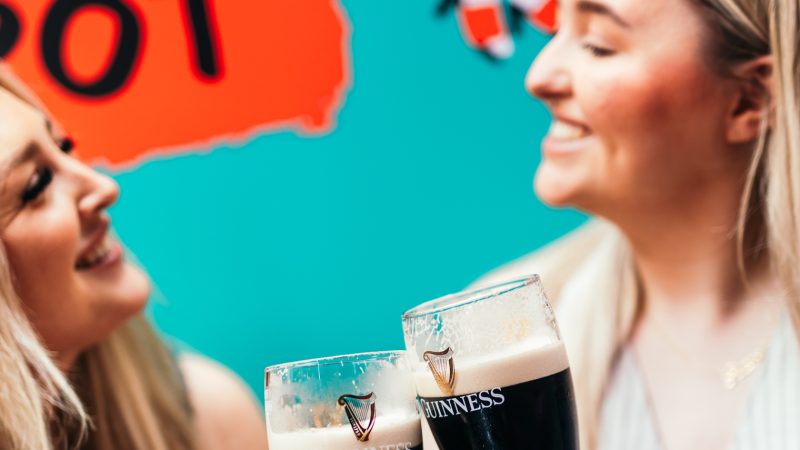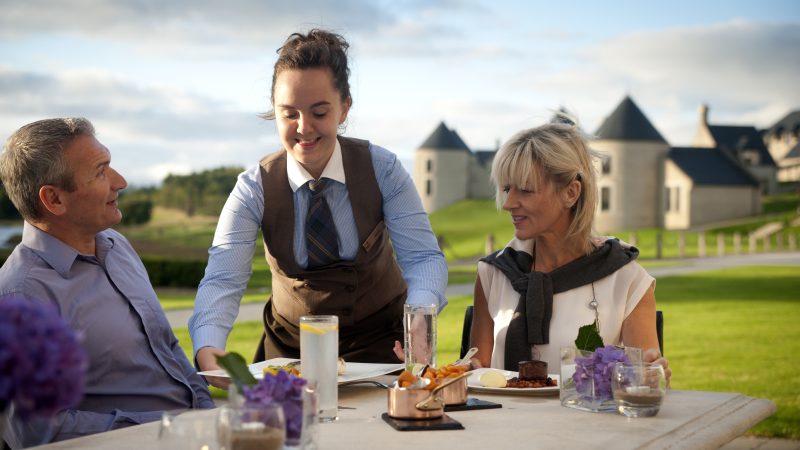Tourism’s sustainable journey: David Roberts, Tourism NI

Sustainability is at the table. It is a priority, and we must recognise and embrace it. It is the right thing to do, for all industries and all communities.
Sustainable practices and policies are no longer seen as a nice to have, but rather primary, decision-making parameters that are changing the landscape all around us. Businesses and consumers are placing sustainability at the forefront of the decisions they make, and the tourism industry has found itself right in the heart of it.
Climate change is playing a bigger part than ever before when it comes to business decisions. For instance, major hotel group, Accor, recently made the decision not to build its planned two hotels in Mykonos, Greece because of the associated climate risks with the country.
We understand the role we have to play. Tourism is a major industry in Northern Ireland, supporting over 70k jobs and nearly 6,000 businesses, and our attitudes towards sustainability have huge knock-on effects on those around us. For tourism to become more sustainable, there are a host of things to consider but they aren’t all big. Small steps to a giant change will be what makes the difference to our environment and those within it.
From our big-hearted welcomes to our breath-taking surroundings, we have so much to offer tourists who come to our island and an eco-friendly approach will only amplify that.
Sustainable Tourism
The UN World Tourism Organisation defines sustainable tourism as ‘tourism that takes full account of its current and future economic, social and environmental impacts, addressing the needs of visitors, the industry, the environment and host communities.’
The Economy Minister’s recently published Tourism Vision and Action Plan for Northern Ireland recognised our high dependency on visitors arriving via sea and air for both business and leisure. It also stated in order to remain competitive as a tourist destination we will need to strike the balance between managing the risks associated with rising carbon prices and developing sustainable routes and connectivity of airports between target markets. The sustainability of NI’s future air connectivity is hugely important in light of the obligations of the Climate Change Act (NI) 2022 and air carriers will be expected to reduce or offset carbon emissions.
With a requirement to reach net zero by 2050, all tourism businesses in NI must play their part. By the nature of our industry and how it is made up of many smaller businesses, we understand that support is needed. 60% of attendees at our recent Tourism Enterprise Development Programme stated that Sustainability was one of the top areas that they needed support with, specifically with regard to business efficiencies and achieving green credentials.
There are positive signs and progress is being made. Belfast currently ranks in the top ten cities on the Global Destination Sustainability Index., At the heart of our experience brand, Embrace a Giant Spirit, the focus is on supporting local communities and local supply chains with the attraction of immersive and authentic experiences.
Sustainable Visitors
Recent research from Booking.com shows that over eight in ten travellers consider sustainable travel important, with three quarters wanting to travel more sustainably over the next year. 57% of travellers also plan to reduce energy consumption, with 54% wanting to use more sustainable transportation. Crucially, over seven in ten travellers say they want to leave places they visit better than when they arrive.
Tourism NI research in 2022 revealed similar results. Just over three quarters of North and South consumers said they put at least some effort into behaving sustainably. In relation to choosing a destination for a holiday or short break, seven in ten Republic of Ireland (ROI) consumers and six in ten NI consumers said that sustainability is taken into consideration or is a key decision factor.
When it comes to being more sustainable in relation to holidays and short breaks, two in three ROI consumers and just over half of NI consumers claimed to have done something to be more sustainable on a holiday or short break. However, challenges remain, with the most commonly cited barrier being cost, followed by lack of personal knowledge.
Sustainable Business Tourism Programme
Tourism NI is working hard to support businesses on their sustainability journey and has established a number of initiatives with practical support in mind.
The Sustainable Business Programme offers structured mentoring and training, enabling businesses across Northern Ireland to develop sustainable tourism offerings, reduce waste, water, and energy consumption, and demonstrate a genuine commitment to sustainability.
To date, Tourism NI has delivered four cohorts of the programme, supporting 53 businesses across Northern Ireland, 48 of which are based outside of Belfast. This programme is designed to build strong relationships, enhance knowledge, and establish best practices among participants, ultimately leading to a thriving cluster of sustainable tourism businesses who can confidently respond to evolving visitor expectations.
This programme supports the key theme of decarbonisation included in the Economy Minister’s recently published Tourism Vision and Action Plan for Northern Ireland. It states that the growing global demand for responsible tourism has accelerated the need to develop new and innovative products and services which are more sustainable.
Promoting tourism developments with a low environmental footprint takes into consideration the UN Sustainable Development Goals which strive for a better and more sustainable future for all through economic growth, reducing poverty, supporting cultural heritage and environmental sustainability. It also creates a network of tourism sustainable champions in local communities who are committed to these efforts, improving the experience for our tourists and also the quality of life in our communities for local businesses and people too.
Leaner and Greener Programme
Tourism NI has developed a ‘Leaner and Greener’ series which is helping those within our industry take practical steps to start their sustainability journey, whilst reducing operating costs. Delivered through workshops, online supports and practical templates, the programme focuses on energy, water, waste and food management. These sessions help businesses to understand Northern Ireland’s current standing point around climate change and biodiversity, gives advice on what steps you can take in each of these areas and the potential benefits to your business. All sessions are available to watch afterwards online at www.tourismni.com.
Best Practices in Tourism
The Boatyard Distillery is Fermanagh’s first legal distillery since 1890 and was established in 2016 by local man, Joe McGirr. In 2023, Boatyard Distillery became the first distillery on the island of Ireland to gain the prestigious B Corp Certification, an international and coveted designation that means the business is meeting high standards of verified performance, accountability, and transparency across all fronts.
Boatyard Distillery has created a culture within the business of repurposing and reusing items to combat waste, creating policies such as bottles made from recycled flint glass and business cards made from recycled coffee cups. The business also repurposes discarded fruit from gin production to make new Boatyard marmalade. The remainder of solid waste goes to composting and liquid waste goes to anaerobic digesters which give electricity back into the grid. Barrels are repurposed to make furniture and spent grain from vodka production is sent to the family farm and used to feed animals.
Placing sustainability at the heart of many business decisions, Boatyard Distillery is an excellent example of a company within the tourism industry that makes green-focused improvements where they can. They use Eco Refill Pouches that can be distributed around the world, which saved 211 glass bottles during the first three months.
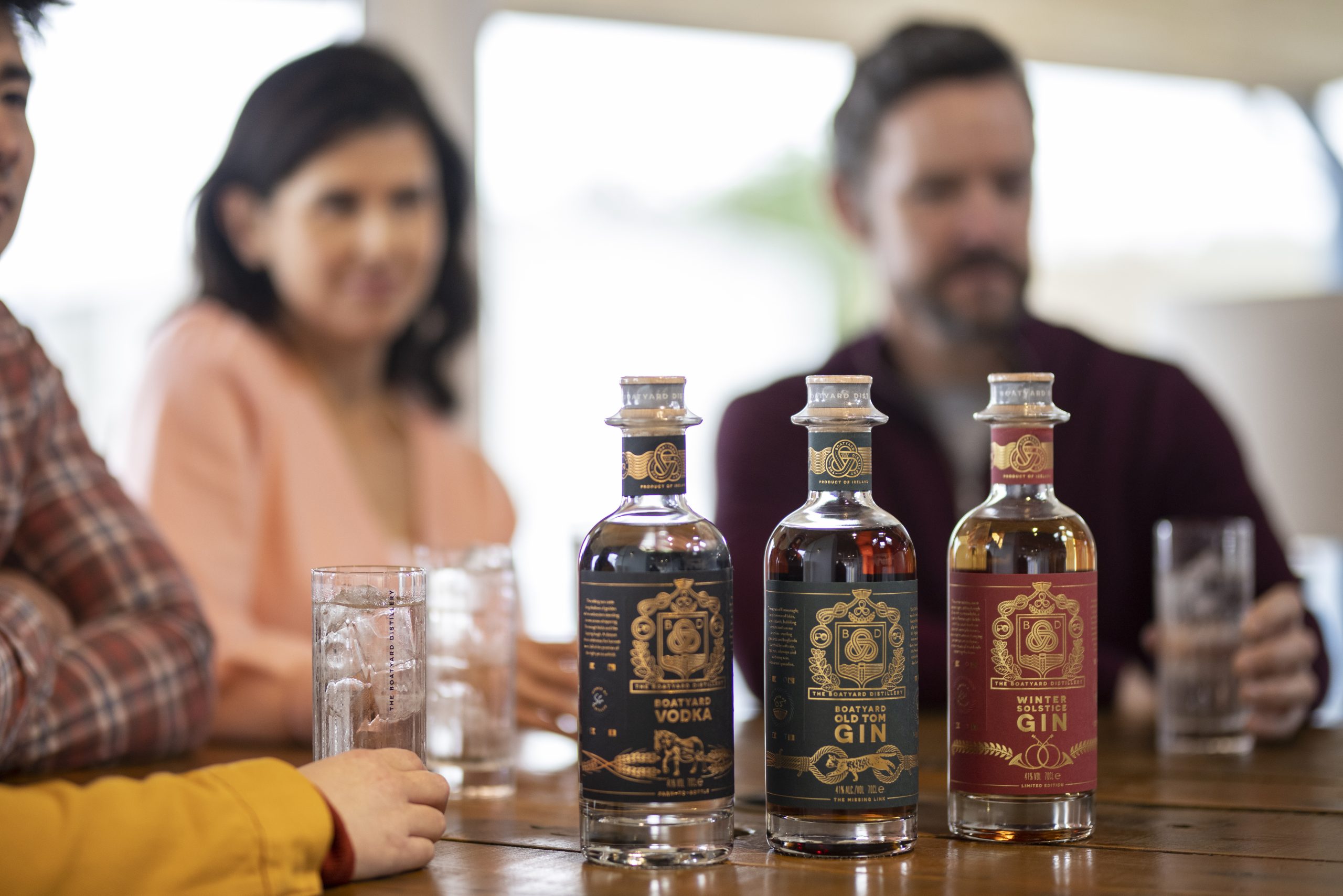
Erne Water Taxi is another excellent example of sustainable tourism in Northern Ireland. Based in Enniskillen, Co. Fermanagh, it offers luxury guided boat trips of Lough Erne and Devenish Island. In 2015, owner Barry Flanagan invested in a fully electric boat, partly powered by solar panels attached to the roof, reducing emissions by 50%.
The initial investment required was 50-60% higher than buying a petrol-fuelled boat and taking just fuel savings into account, the business estimated a pay-back time of 10 years. However, adding solar panels, which now provide 30-40% of the energy, and taking into account the increased capacity that the electric boat offered, the payback time was reduced to just five years. The electric boat is also fully accessible, accommodating six wheelchairs and is silent, favouring visitors with auditory sensitives. It gives a peaceful opportunity to disconnect from the noise and busyness of everyday life with many visitors remarking on the sense of tranquillity they experience allowing them to hear and experience the lake’s wildlife up close.
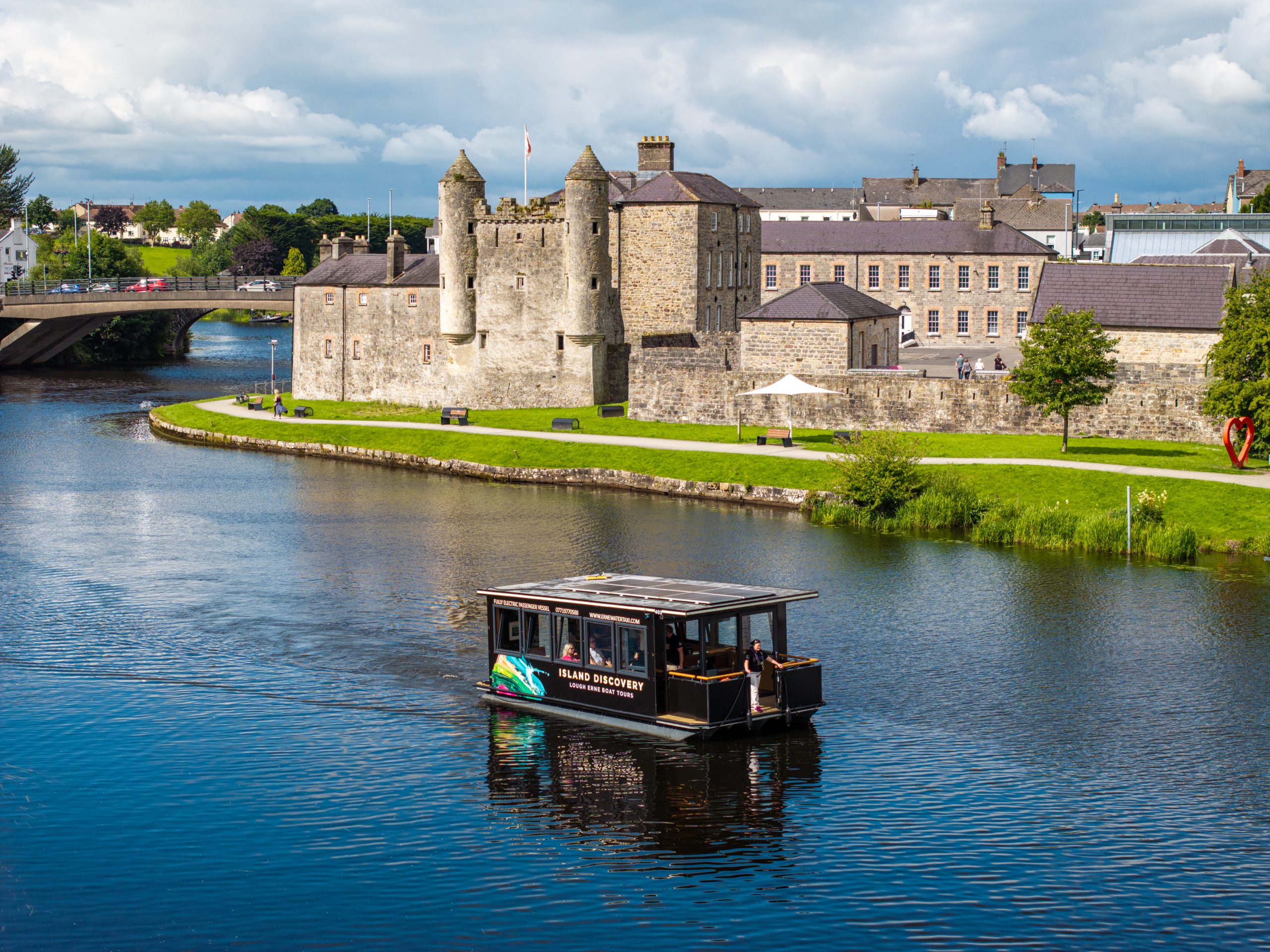
Year on year we are seeing sustainability rise through the ranks of priorities for both businesses and visitors alike. We are seeing incredible steps being taken by our industry across the country to become more sustainable and at Tourism NI, we are here to support those who need guidance and support, whether that be for big initiatives or small everyday changes to help them progress through their sustainable journey.




